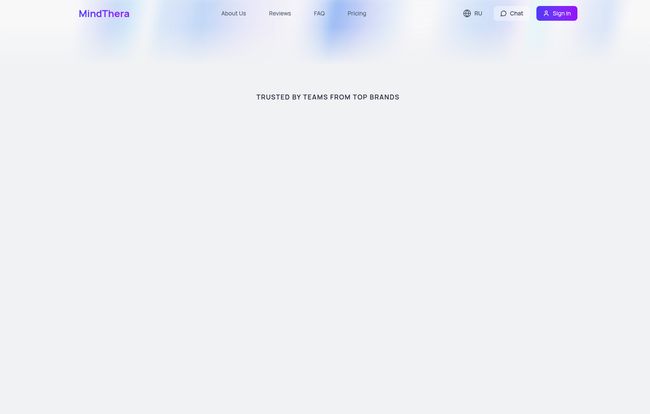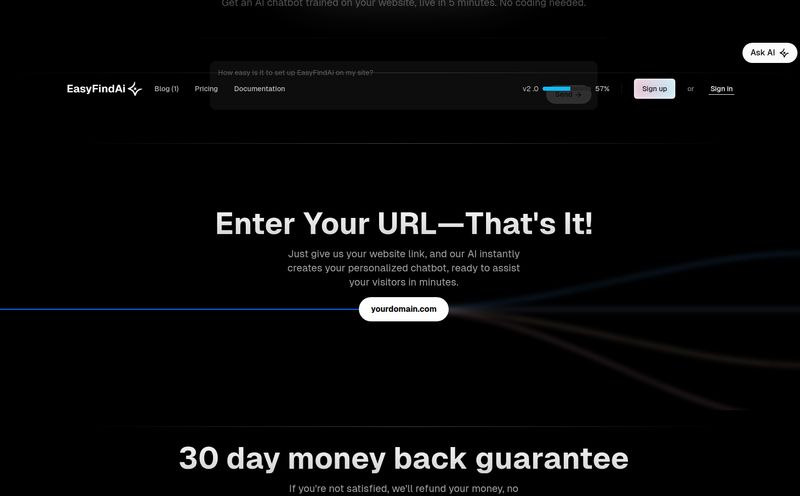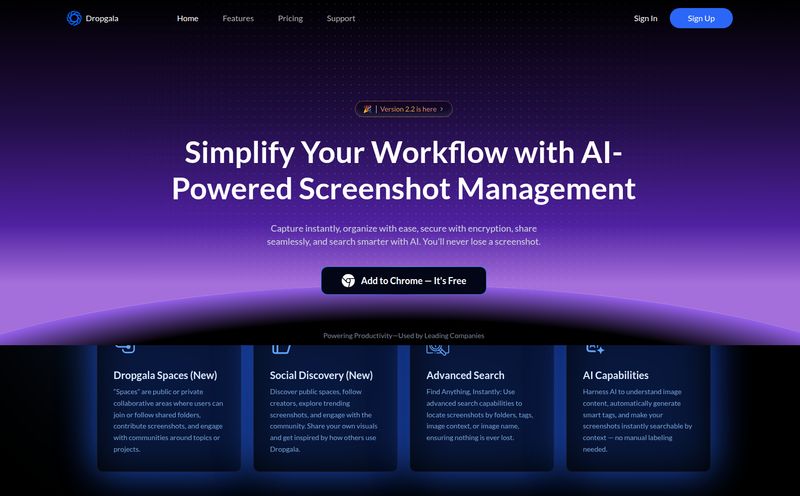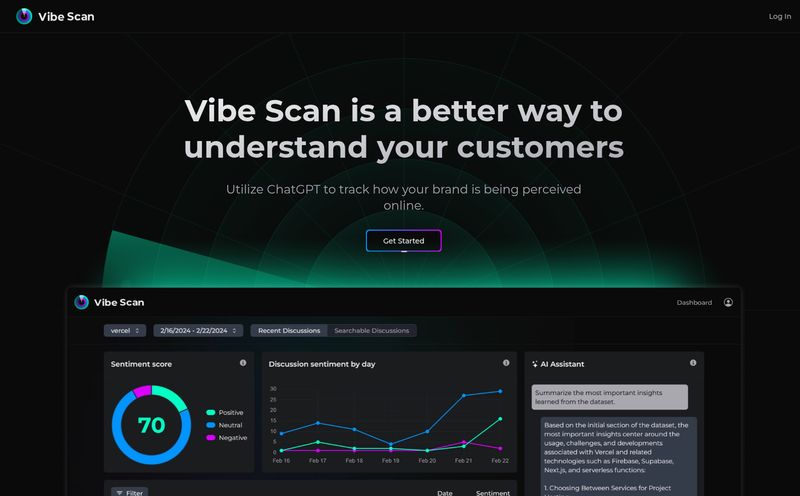The world feels like it’s spinning faster than ever. We're all juggling a dozen things—work deadlines, family stuff, trying to remember if we watered the plants, and that constant, low-level hum of anxiety from our phones. There are days when my brain feels like a browser with way too many tabs open. You know the feeling. It's that moment you think, “I could really use someone to talk to,” but it’s 11 PM on a Tuesday and the idea of finding, vetting, and scheduling a therapist feels like another monumental task.
I’ve been in the SEO and traffic game for years, and I’ve seen trends come and go. But one trend that’s sticking around is the move towards accessible, on-demand services. From groceries to entertainment, we want things now. So, it was only a matter of time before that mentality hit the world of mental health. That’s where a tool like MindThera comes in, and I've got to admit, I was intrigued.
So, What Exactly Is This MindThera Thing?
Okay, let's break it down. MindThera bills itself as an AI-powered online psychological support service. That's a mouthful. In plain English? It’s a platform you can access 24/7 from your phone or computer to get support for things like anxiety, stress, and feeling completely burnt out. The big hook is that it’s powered by artificial intelligence. It's therapy. But not. You get me?
It's designed to be a safe, anonymous space where you can unpack what’s on your mind without the pressure of a face-to-face meeting. Think of it less like a scheduled appointment with a stoic doctor and more like having a wise, non-judgmental friend on speed dial—a friend who happens to be a very sophisticated algorithm that's available literally anytime, anywhere.

Visit MindThera
How Does It Actually Work?
When you start a session, the AI begins by getting a sense of your emotional state. It asks questions, listens to your responses (well, reads them), and then offers personalized recommendations and guidance. The idea is to help you navigate your feelings in the moment. I've played around with it, and the interaction is surprisingly... human. It's not just spitting out canned responses. The AI seems to learn and adapt its approach based on what you're sharing, which is pretty cool tech if you ask me.
The entire process is confidential, which is a huge deal. For many, the stigma around mental health is still a massive barrier. The anonymity of MindThera could be the very thing that encourages someone to take that first step towards getting help. A step they might otherwise never take.
Let's Talk About the Elephant in the Room: The AI Part
I know what you're thinking because I thought it too: “Can a robot really help with my problems?” It's a fair question. Some people in the mental health space are understandably wary of AI's role. A 2022 study I read in JMIR Mental Health talked about the potential and the pitfalls of AI chatbots, and the debate is far from over. So let's get into the nitty-gritty.
The Upside of an AI Confidant
The biggest pro is the 24/7 availability. Your anxiety doesn't care if it's 3 AM. A human therapist is sleeping (and they should be!), but MindThera is always on. There's also no judgment. None. You can talk about your most irrational fears or embarrassing thoughts without worrying about what another person thinks of you. For pure, unadulterated venting and processing, it's a fantastic outlet. And let's not forget the anonymity—it’s a powerful feature for anyone feeling hesitant or private about their struggles.
Where It Might Fall Short
Of course, it’s not a perfect substitute for human connection. An AI can’t replicate the genuine empathy, shared experience, and nuanced understanding a trained human therapist can provide. It's an incredible tool for support, coping mechanisms, and in-the-moment relief. But it's not equipped to handle severe mental health crises, complex trauma, or provide a clinical diagnosis. It's a support tool, not a replacement for a doctor. It's important to see it for what it is, and not what it isnt.
The Pricing Model is a Breath of Fresh Air
Okay, this is the part that really got my attention. As someone who watches trends, the subscription fatigue is real. Everything is a monthly fee now. That’s why MindThera’s pricing feels so refreshingly straightforward. They operate on a “pay only for what you use” basis.
You’re not locked into a hefty monthly or annual commitment. You just buy sessions as you need them. This lowers the barrier to entry so, so much. You can try it out for less than the cost of a fancy coffee.
| Sessions | Price | My Take |
|---|---|---|
| 1 Session | $2.99 | Perfect for just trying it out. No risk. |
| 3 Sessions | $6.99 | The 'Best Buy' for a reason. Great value. |
| 5 Sessions | $9.99 | Good for a week of daily check-ins. |
| 10 Sessions | $16.99 | For when you know this is a tool you'll use regularly. |
This flexibility makes mental health support accessible to people who might be priced out of traditional therapy or expensive app subscriptions. That, to me, is a massive win.
More Than Just a Chatbot: The Community Aspect
Here’s another layer to the platform that I think is underrated. MindThera isn’t just you and an AI. They’ve cultivated a community—the site says over 4 million people—where users can share experiences and support each other. Feeling isolated is a huge component of struggles like depression and anxiety. Knowing there's a community of people who get it can be incredibly validating. It turns the experience from a solo activity into a shared one, even if it's all done anonymously. It's a smart move that recognizes that sometimes, the best support comes from peers.
Who is MindThera Actually For?
So, who should give this a shot?
In my opinion, MindThera is perfect for the busy professional dealing with work stress, the student overwhelmed by exams, or anyone who is “therapy-curious” but not ready to dive into the deep end. It’s for people who need a convenient, affordable, and private way to manage everyday stress and anxiety. It’s a fantastic first step or a supplementary tool to have in your mental wellness toolkit.
Who is it not for? If you are in a serious mental health crisis, are having suicidal thoughts, or believe you need a clinical diagnosis for a condition like bipolar disorder or severe depression, you need to see a human professional. MindThera is a support tool, not a substitute for clinical care.
My Final Verdict: A Worthy Tool in Your Mental Wellness Arsenal?
After spending time with MindThera, I’m genuinely optimistic. Is it going to replace human therapists? No, and it shouldn't. But that's not its goal. Its goal is to make psychological support more accessible, immediate, and less intimidating. And at that, it succeeds brilliantly.
Think of it like this: you have a first-aid kit at home for cuts and scrapes. You don’t use it to perform surgery, but you're incredibly glad it's there when you need it. MindThera is like a first-aid kit for your mind. It's a valuable, affordable, and powerful tool for managing the everyday bumps and bruises of modern life. For the price and the sheer convenience, it’s absolutely worth a look.
Frequently Asked Questions
Is MindThera a replacement for a human therapist?
Absolutely not. It's a fantastic support tool for managing daily stress, anxiety, and burnout, but it is not a substitute for clinical care from a licensed professional. If you're in a crisis or dealing with severe mental health issues, please seek human help.
How does MindThera ensure my privacy?
The platform is built on anonymity and confidentiality. You don't need to use your real name, and the interactions are private, providing a safe space to open up without fear of judgment.
Is MindThera free to use?
It's not free, but it's very affordable. It uses a pay-per-session model instead of a subscription. A single session starts at just $2.99, so you can try it without a major financial commitment.
What kind of issues can MindThera help with?
It's primarily designed to help users cope with common challenges like anxiety, stress, emotional burnout, relationship issues, and general feelings of being overwhelmed. It provides coping strategies and a space to process these feelings.
Can I use MindThera anytime I want?
Yes! This is one of its biggest strengths. The AI-powered service is available 24/7, so you can get support whenever you need it, day or night.
Taking That First Step
In a world that demands so much from us, taking care of our mental health isn't a luxury; it's a necessity. Tools like MindThera are democratizing access to support, making it easier and more affordable for everyone to get a little help when they need it. It might not be the whole solution, but for many, it could be the perfect start.
Reference and Sources
- JMIR Mental Health: Conversational Agents for Mental Health and Well-Being: Scoping Review - A look into the effectiveness and challenges of using chatbots for mental health.
- MindThera Official Website - For the most current information on features and pricing.



